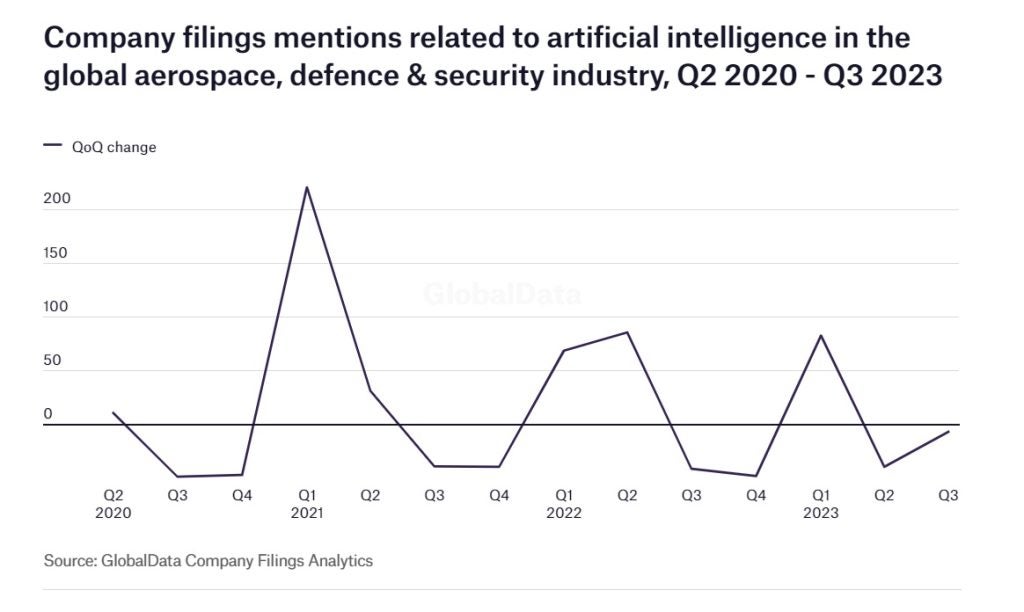
To enhance the safe and responsible use of artificial intelligence in defence, the Defence Science and Technology Laboratory (Dstl) has entered a non-contractual agreement with Microsoft, focusing on innovation, skill sharing, and technical exchange to bolster the ethical use of artificial intelligence (AI) in defence.
This collaboration takes place against a backdrop of shifting trends in the aerospace, defence, and security industry, where GlobalData’s latest report reveals a drop in AI mentions in Q3 2023 filings.
This alliance positions Dstl to harness emerging AI capabilities while addressing challenges to ensure the UK Armed Forces remain at the forefront of technological advancements.
The collaboration aims to accelerate the adoption of AI guided by the Ministry of Defence’s ethical principles. Microsoft’s support will extend to Dstl and the Defence AI Centre’s (DAIC) AI learning agenda, providing early access to relevant software engineering roadmaps and fostering collaboration on defence projects.
Professor Steven Meers, Dstl’s AI and Data Science lead, said: “AI is a strategic priority for defence and working with industry is key to supporting our Armed Forces and ensuring they can access safe and responsible AI systems.
This is a fast-moving technology area and, by bringing together the deep technical expertise of Dstl and Microsoft, we are better able to ensure we maintain pace and address a range of challenges to help accelerate adoption of AI within MOD.”
Simultaneously, the aerospace, defence, and security industry witnessed a notable shift in AI mentions during Q3 2023, as revealed by GlobalData’s Aerospace, Defense & Security: Filings Trends & Signals report.

Despite a 46% overall drop in industry filings, Lockheed Martin stood out with a 700% increase in AI-related references year-on-year. The report highlights Lockheed Martin’s position in AI discussions, contrasting with decreased mentions from other industry leaders.
This strategic collaboration between Dstl and Microsoft is a move that hopes to position the UK at the forefront of AI innovation in defence, countering industry trends. As the aerospace, defence, and security industry experiences fluctuations in AI mentions, Dstl’s initiative aims to ensure that the UK Armed Forces stay ahead in leveraging technologies to address evolving threats.
Our signals coverage is powered by GlobalData’s Thematic Engine, which tags millions of data items across six alternative datasets — patents, jobs, deals, company filings, social media mentions and news — to themes, sectors and companies. These signals enhance our predictive capabilities, helping us to identify the most disruptive threats across each of the sectors we cover and the companies best placed to succeed.



